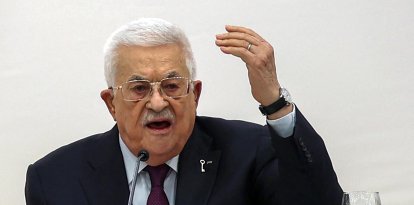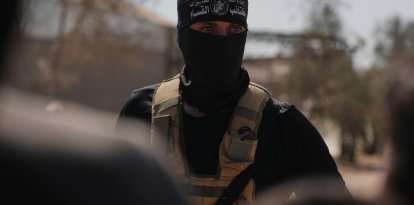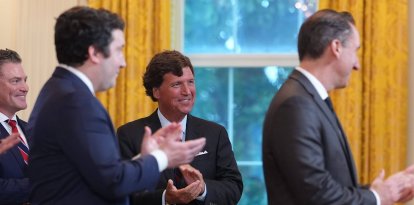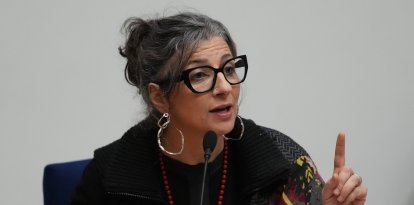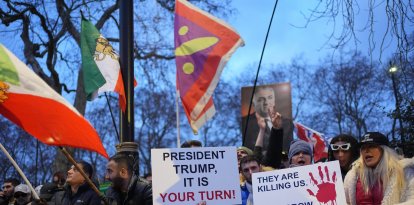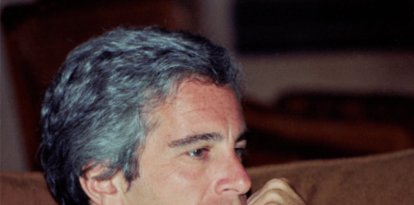9/11: When Hate is Stronger than Love
Hatred, not love, motivates the enemies of the West, Islamist or otherwise. Not wanting to see it is the best way to have another 9/11.

(PxHere)
Whenever I used to visit New York, I would always go up to the World Trade Center’s observatory on the 107th floor of its South Tower. It was my pilgrimage to the top of the world's most important democracy and its spectacular views of arguably the most vibrant city in the pre-Covid world. The last ticket I have is from December 2000. In September 2001, from my office on the fourth floor of the Spanish Ministry of Defense I watched on live television how Towers fell after the impact of the planes hijacked by Al Qaeda terrorists.
In 1989 I had already experienced one of those rare moments in history when everything suddenly changes. It was when Central Europe freed itself from the communist yoke, culminating in 1991 with the subsequent demise of the USSR. It was the end of the Cold War, the end of the omnipresent nuclear threat and the triumph of liberalism over totalitarianism. As someone dared to assert, it was the end of history.
On September 11, 2001, everything changed again. The United States’ unipolarity was threatened not only by a superpower, but also by a terrorist group nestled in the mountains of Afghanistan; the US was attacked not with ballistic missiles armed with atomic warheads, but with its own civilian aircraft. The targets could not have been more symbolic: financial, military and political power (the World Trade Center, the Pentagon and presumably the Capitol), and the reasons for the attack, far from being strategic, geopolitical or economic, were religious: the holy war, the Jihad, went against the biggest exponent of the unfaithful: the United States of America.
Following the mailing of a few letters laced with anthrax, Americans discovered, to their horror, that they were vulnerable in their own territory. Even worse, they had to get used to the fact that their enemies did not always come from outside, but instead were already among them. The war against jihadist terrorism obviously bore fruit after years of inaction: the fall of the Taliban regime in Afghanistan, which refused to hand over Bin Laden; the expulsion of Al Qaeda from its sanctuary and the arrest or elimination of its main operatives. Incidentally, these actions continue, as we know from the recent death of Bin Laden's successor, Al Zawahiri, last July. Today, Al Qaeda is weaker and less capable of organizing a terrorist attack than it was 21 years ago.
Radical Islamism develops wherever there is Islam. The larger the Muslim population, the greater the likelihood of the emergence of radicalized individuals and terrorist cells. However, we have yet to learn this lesson because in recent years, uncontrolled migration has been the main feature of demographic movements towards the West.
However, just as we were wrong in 1991 to celebrate the fall of the USSR, we would be wrong to celebrate a premature death of jihadist terrorism. Firstly, because President Biden's hasty withdrawal of American (and, necessarily, allied) troops from Afghanistan once again provides them with a territory where they could take root, train and plan their actions with peace of mind. As the months go by, Western intelligence will have less and less access to Afghanistan, which will be a notable advantage for terrorists. Secondly, and paradoxically, the Western victory over the Islamic State strengthens Al Qaeda's leadership within the international Jihad.
The main Western mistake regarding both Al Qaeda and the Islamic State is considering them to be mere terrorist groups and fight them either with intelligence, police or military means. Doing so ignores something much more essential, without it both organizations would not even have come into existence: the accelerated radicalization of Islam. 1979 was not only the year of the Soviet invasion of Afghanistan and the birth of the famous mujahideen, but also the year of Khomeini's Shiite Islamist revolution in Iran, and the assault on the Great Mosque of Mecca by a Saudi terrorist group.
The most radicalized prepare themselves to become martyrs, but the moderates become more rigorous in their customs. Those who had never really been all that devout become more convinced of their religion. It is indeed this social and political radicalization of Islam that makes Al Qaeda or any other Salafist group highly dangerous. In America, but especially in Europe, we have seen the bloody effects of radicalization with terrorist cells that are self-constituted and self-inspired rather than directed by terrorist groups. Moreover, individual attacks through hit-and-runs or stabbings, which are extremely easy since they do not require any knowledge of explosives, have also become more common. However, mobility restrictions imposed by governments as a means of curbing the Covid pandemic have brought a truce to Islamist terrorism in Europe. This is not so in Africa.
Whether we like to admit it or not, radical Islamism develops wherever there is Islam. The larger the Muslim population, the greater the likelihood of the emergence of radicalized individuals and terrorist cells. However, we have yet to learn this lesson because in recent years, uncontrolled migration has been the main feature of demographic movements towards the West.
I had the opportunity to visit first the small memorial for the families of the 9/11 victims and then the museum erected in NY in memory of the brutal terrorist attack. Less than a week ago, with the preparations for the 21st anniversary, I visited both places again. The horror still lingers there and yet, I was able to observe how the passing of time changes the reading of those dramatic events. Years ago, the victims’ sacrifices and the courage of those who came to their aid were praised as well as the efforts of those who fought to prevent another event like this from occurring again. Today, it makes no sense to display a T-shirt worn by of one of the Marines who took out Bin Laden in his safe house in Abbottabad 10 years ago. The United States and the West as a whole have been assaulted from within by the woke mentality, which is a covert criticism of power and an open criticism of everything that being an American or traditional European stands for. Wokeism has unfortunately also made its way to the 9/11 memorial, and this year the slogan printed on their posters and T-shirts is "Love is stronger than hate.” But it's not true, and no one knows that better than those who were affected by 9/11. It was hatred and not love that drove Bin Laden and it is hatred and not love that motivates the enemies of the West, Islamist or otherwise. Not wanting to see it is the best way to have another 9/11.














